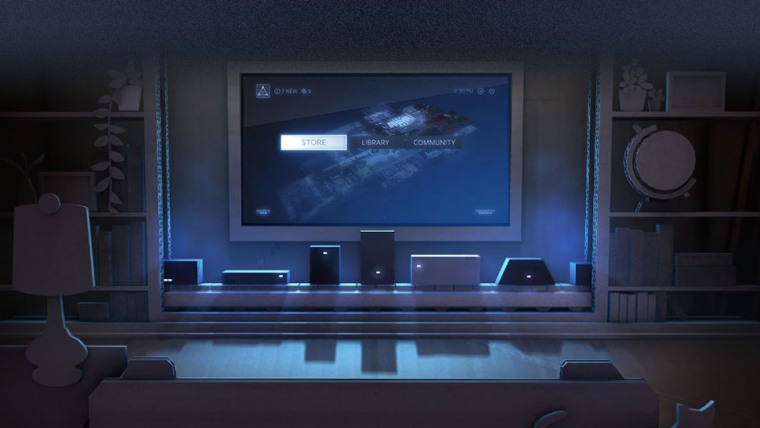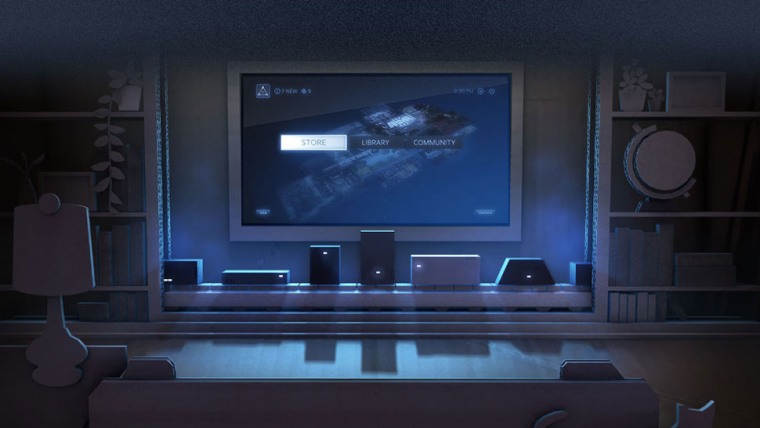
PC gaming giant Valve Corporation revealed plans Wednesday to release new hardware designed for living room gaming some time in 2014, but it's not exactly what gamers were expecting. Instead of the single proprietary "Steam Box" running the company's newly announced Linux-based operating system SteamOS, the company is putting out multiple "Steam Machines."
This came as a surprise to many Valve fans who were expecting the "Half Life" and "Portal" creator to simply unveil a finalized version of its original Steam Box hardware. Rumors have abounded since early 2012 about Valve working on some sort of super-secret piece of hardware that would finally unify the disparate worlds of PC and console gaming. In the process, the mysterious new device was made out to be the first serious competitor to the PlayStation 4 and Xbox One's dominance of living room gaming.
In its announcement Wednesday, Valve revealed that it is still honing in on the living room with its future products, but it doesn't think that only putting out a single Steam Box is the best way to do so.
"We want you to be able to choose the hardware that makes sense for you, so we are working with multiple partners to bring a variety of Steam gaming machines to market during 2014, all of them running SteamOS," Valve wrote in the announcement.
Valve therefore left open the possibility that whatever Steam Machines eventually make it to market next year could either be first- or third-party hardware. The company is putting out invitations for 300 Steam users to participate in a beta test they must qualify for by completing an "eligibility quest" that involves familiarizing themselves with Steam's current features.
Given that Valve essentially admitted that it is still open to suggestions for whatever new device with which it's hoping to conquer the living room, details about any prospective features are understandable scarce. Chipmaker Nvidia did give some clue Wednesday, however, when it said in a press release that the two companies "have spent a lot of time collaborating on a common goal for SteamOS," which suggested that any Steam Machine hardware would use Nvidia's tech.
In keeping with its indie-friendly image, Vavle did say that any Steam Machines would be more flexibly managed than their counterparts in console gaming. As with the PC gaming ecosystem that came before it, then, Valve said it is emphasizing customizability. Players will be able to run SteamOS games with either a gamepad control or a mouse-and-keyboard combo. Just as you've always been able to build your own personal computer from the ground up, tech-savvy users will be able to tinker with any future Valve hardware and will even be able to make their own SteamOS-compatible devices from scratch if they want to make a truly souped-up gaming device.
"The specific machine we're testing is designed for users who want the most control possible over their hardware," Valve said. "Other boxes will optimize for size, price, quietness, or other factors."
That all sounds well and good for the hacker-friendly ethos of PC gaming. But Valve's decision to separate its hardware and software components could just as easily indicate a company-wide ambivalence about how exactly to target the living room market. Writing in an analyst brief after the SteamOS announcement on Monday, Piers Harding-Rolls of IHS Electronics and Media said "Valve's decision to open up the Steam platform to third-party device manufacturers reflects the limitations the company faces in building its living room presence using just its own hardware solution."
"If Valve eventually announces its own-branded hardware, question marks remain over whether it will be able to design and have built a device that manages to tread the fine line between mass market pricing and usability," he said. "Will the device need to stream content in-home from a well-specced PC? If yes, this will be a serious limitation to the broadening potential of any new platform. The long delay to the platform reflects that finding the right commercial balance is not easy to achieve."
Yannick LeJacq is a contributing writer for NBC News who has also covered technology and games for Kill Screen, The Wall Street Journal and The Atlantic. You can follow him on Twitter at @YannickLeJacq and reach him by email at: Yannick.LeJacq@nbcuni.com.
